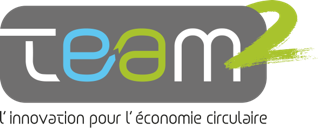RUSTINE
The recovery of plastic waste is a major concern for both industry and consumers who are involved in the management of their household waste. However, their recovery remains limited today partly due to a lack of potential outlets for recycled plastics (for technical, economic or regulatory reasons). In particular, the performance of recycled materials is often lower than that of virgin materials, which limits their recovery in a closed loop.
In the automotive field, the presence of contaminants in recycled materials leads to the formation of odours, which generally limits their use to external parts. Moreover, in the field of food packaging, a large consumer of plastic, the use of recycled material is not yet possible, due to the potential contamination of the latter.
Presentation of the RUSTINE project
The RUSTINE project involves 4 companies (Galloo Plastics; Wipak; Nutripak and Stellantis) and 2 academic laboratories (UMET (Materials and Transformations Unit) and IMT NORD EUROPE (Institut Mines-Télécom) / the Armines association) which aim to develop a process for decontaminating plastic waste from various sectors (the target sector being food packaging).
The objective is to demonstrate that, even if this is currently impossible, this waste can be returned to application sectors such as food packaging (closed loop) and the automotive industry (interior).
Process and objective of the RUSTINE project
In order to enable the use of recycled material in these fields, the development of efficient depollution processes appears necessary and constitutes the object of the RUSTINE project. The process that will be studied and developed during the project is a fluid assisted extrusion process, with water and carbon dioxide in the supercritical state being the two fluids chosen. The aim is to identify the key parameters that govern the depollution without degrading the polymer. At the end of the project, the technical feasibility of recycling food packaging is expected to be demonstrated at different scales (laboratory, pilot and industrial). The results and data from the project could be used in the context of an application for authorisation to use the polypropylene resulting from the decontamination process developed within the framework of RUSTINE, in food contact applications with the EFSA (European Food Safety Security). The development of such a process should enable better recovery of plastics from packaging waste.
The overall challenge of the RUSTINE project is to produce a recycled material that meets the specifications of the end users, i.e. the automotive and/or food packaging sectors, in order to contribute to increasing the recovery rate of recycled plastics.
Background to the RUSTINE project
At present, only polyethylene terephthalate (PET) is mainly used in iso-functional applications (bottle-to-bottle). The polymer targeted in the RUSTINE project is polypropylene (PP), which is widely used in the food and automotive sectors and whose volumes collected should increase with the general implementation of the extension of sorting instructions. The possibility of offering a recycled, decontaminated and/or odourless polypropylene would enable the development of a high value-added polypropylene recovery sector and would result in an increase in demand and a return to the choice of polypropylene packaging for certain players inclined to turn to other materials (biodegradable, for example, which disturbs certain plastic waste recovery sectors).
The economic impact would therefore be felt throughout the sector: manufacturing, conversion, consumption. On the other hand, in a context of strong environmental protection, the plastics and polypropylene processing industries in particular will thus be able to develop a circular economy, reduce their dependence on fossil energy and increase their social responsibility.
